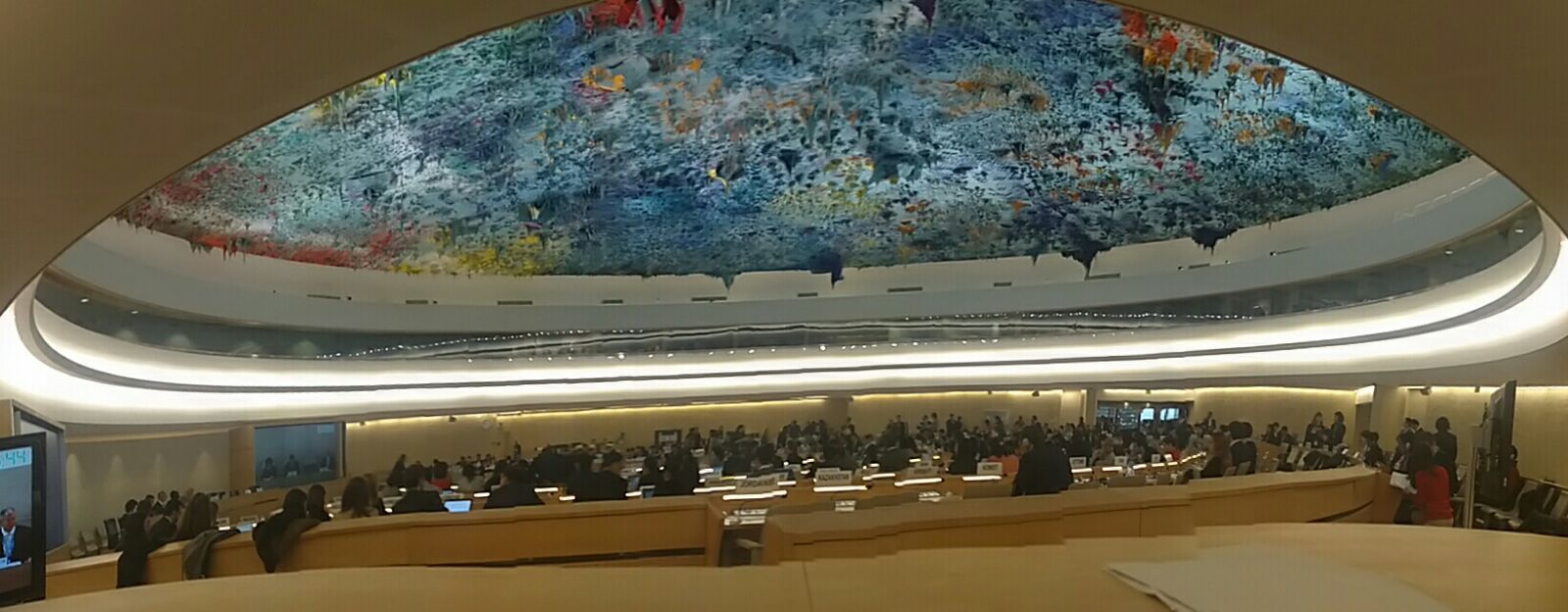On Thursday 15 March, during the Item 5 General Debate at the 37th session of the UN Human Rights Council, Yusuf al-Hoori delivered an oral intervention on reprisals by states against human rights defenders and civil society activists for their work with the Human Rights Council and its mechanisms, naming Ebtisam al-Saegh and Sayed Ahmed Alwadaei. Click here for a PDF of his intervention in English, and here for a PDF of his intervention in Arabic.
Mr. President,
We would like to raise our concern to the Council over repeated, long-standing issues of reprisals by States against human rights defenders and civil society activists for their work with the Human Rights Council and its mechanisms.
Bahrain has carried out a sustained campaign against civil society members inside and outside the country in relation to their UN work. Since June 2016, there have been blanket travel bans against Bahrain civil society corresponding to the timing of each HRC session.
For the few who have been able to evade these travel bans, risks of further reprisals is great. HRD Ebtisam al-Saegh faced intimidation, arson attacks, arrest, interrogation, torture, sexual assault, and fabricated terrorism charges for her participation in HRC 33 and Bahrain’s 3rd UPR. Though now released from detention, the government maintains the terrorism charges against her.
Outside the country, exiled HRDs like Sayed Ahmed Alwadaei have had their family members in Bahrain targeted in retaliation for their international activism. Three of Alwadaei’s relatives have been tortured, and convicted on fabricated terrorism charges.
Reprisals are unacceptable in all circumstances, and must be condemned forcefully and immediately. We call on Bahrain to end all reprisals against civil society, release all arbitrarily detained prisoners, and allow civil society to travel freely to carry out their work.
Thank you.





